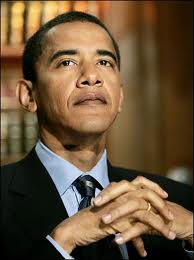The Art of War: Obama’s “Greater East”

Translated from Italian by John Catalinotto
For 236 years the U.S. has defended democracy everywhere: Hillary Clinton asserted this in Cairo. Thus she must have erased from history the more than 160 military interventions abroad that U.S. imperialism made starting from the 1940s; the wars of the Cold War period in Korea, Vietnam, Laos, Cambodia and Lebanon; the coups the CIA orchestrated in Guatemala, Indonesia, Brazil, Chile and Argentina; and the wars of the post-Cold War period in Iraq, Somalia, Yugoslavia and Afghanistan.
Clinton guarantees that the Obama administration is making the same commitment to carry out these actions. In fact, from the strategy launched by Republican George W. Bush of the Greater Middle East (including North Africa and Central Asia), Democrat (and Nobel Peace Prize laureate) Barack Obama has moved to the strategy of the Greater East, which aims at the entire Asia-Pacific region in an open challenge to China and Russia.
The first step was the war against Libya, which (as Bill Clinton and Bush did with Yugoslavia) has been demolished as a unified state to put into power rulers loyal to Washington. This led to the “free elections” in the “free Libya,” won by the “liberal” Mahmoud Jibril, whose success is attributed to the popular will.
To claim this ignores the fact that the U.S. and other western powers spent millions of dollars in Libya to secure the support of organizations and tribal groups. It ignores that Jibril has Washington’s confidence since he is an economist trained in the U.S., responsible for promoting economic neo-liberalism in the Arab world. In 2007 Jibril was made head of the Government Office in Libya for economic development, linked to the U.S. and British multinationals. In this capacity, Jibril warned Washington that the plan to privatize the Libyan economy and form a new pro-Western ruling class had been blocked by Gadhafi, and that competition from China and Russia was increasing. Jibril’s victory was already on the drawing board.
On March 30, 2011 (ten days after the beginning of the war against Libya), the New York Times wrote, based on information from the government: “If the American and Western intervention overthrows Muammar Gadhafi, Mahmoud Jibril could be the leader of Libya.”
The war on Libya is the model that the U.S. has adopted to disintegrate other states, including Syria and Iran, which hinder their advance eastward. Since many countries are reluctant to host U.S. military bases, the Pentagon is deploying in international waters, starting from the Persian Gulf and moving gradually eastward, using special ships that serve as floating bases for special forces.
Other air and naval bases have been installed or upgraded in Thailand, Philippines, Singapore, Australia and other countries. In Singapore, the first “littoral combat ship” was deployed. It’s a new warship that can approach the coast to strike deep inland. The U.S. Navy has deployed about 50 of these in the Pacific.
As part of a diplomatic offensive to create rifts between China and neighboring countries, Clinton made a “historic visit” to Laos. Promising $9 million for de-mining, she had her picture taken with a boy who was mutilated; he was one of the many victims of unexploded ammunition, which was approximately 30 percent of the 2 million tons of bombs dropped on Laos by the U.S. in 1964 -1973. Of course, it was to defend democracy.

